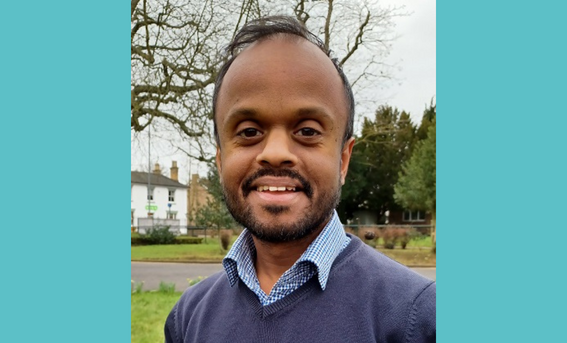Psychologist Sunil given national voice on health and justice

Having a voice at the highest level, and to champion healthcare for those in the justice system, is part of a new role taken on by a leading psychologist in Northamptonshire.
Dr Sunil Lad, a Consultant Counselling Psychologist at Northamptonshire Healthcare NHS Foundation Trust (NHFT), has just taken on the role of National Clinical Director for Health and Justice.
It means, as well as his day-to-day job with NHFT, Sunil will be working alongside some of the most important healthcare representatives in the country, playing a key role in influencing NHS policy around ‘secured services’ at prisons, immigration removal centres and integrating into the community by offering a ‘clinical lens’ on everything in the health and justice arena.
He’ll be coordinating national strategies with people such as Kate Davies OBE Director of Health and Justice for NHS England, as well as attending forums involving NHS Chief Executive Amanda Pritchard and Chief Medical Officer for England Professor Chris Whitty, among others.
Sunil (pictured) said “This role will be a huge opportunity to have a voice at a national level. It’s an interesting and challenging time to come into it, but great to be able to advocate for people who have found themselves in the justice system, often for a number of complex reasons.”
Working as a psychologist in prisons since 2003, Sunil has developed a special interest in the link between positive healthcare outcomes and reducing reoffending. He has given clinical leadership in a variety of settings including high secure prisons, immigration removal centres, young offender institutions and Mental Health Treatment Requirements in the community which are being rolled out across the country.
Sunil joined NHFT 12 years ago, starting out as a psychologist in prison mental health services, where he would hold one-to-one sessions with inmates about their mental health to understand their pathway into crime, provide intervention and treatment, and focus on rehabilitation. He said that his vast experience at NHFT will help him influence policy and initiatives at the highest level.
By meeting the mental health needs of individuals in the justice system, Sunil says it can significantly reduce reoffending and any subsequent harm to others, as well as reducing the burden on the taxpayer by keeping people out of prisons. He acknowledged that, whilst there are risks with diverting people away from prisons, by working closely with police, the probation service, and others, as well as supporting the individual, these risks can be mitigated.
Sunil said: “People’s life chances can be affected by poverty, trauma, adversity, addiction, and other issues. They may have been groomed or joined a gang seeking an identity. Their route into criminality could be incredibly complex, but by aiming to understand what brought them here, and by giving them good care, you can work towards rehabilitation.”
He said: “When you hear the stories about why people have ended up where they have, it makes sense, and often makes me feel grateful for what I have in my life. And – whilst not everyone who has experienced trauma ends up in prison – by not shaming people and understanding their pathway and needs, we can help with rehabilitation.”
He added: “Compassion often takes strength and courage, when you are looking in such dark places, but the important thing is to see the human being. Only then can we begin to make a difference.”
Find out more about NHFT’s secured services at www.nhft.nhs.uk/securedservices

